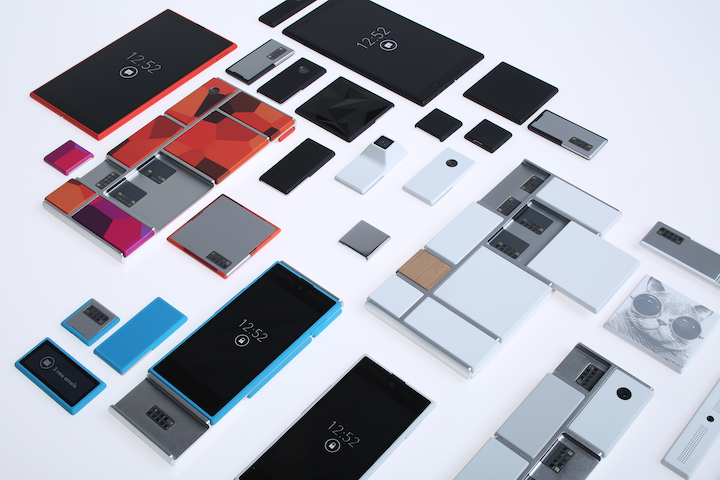Project Ara: Google's Customizable Modular Phones To Launch In 2015 With Android L

Google gave us a few more details on Project Ara, the modular mobile phone concept scheduled for early 2015. Specifically, it will be sold via "a new online store" as well as Google Play once available, according to the Ara developer blog, Phoneblocks.
Project Ara phones will also run a modified version of its upcoming Android L operating system, which it has developed in conjunction with developers of the Linaro Linux-based software.
While there has been little news about Project Ara in recent months, the device, which is supposed to allow users to switch out various components according to their design and hardware preferences, has been an ongoing topic of interest for some time. The device includes an “endoskeleton” frame, to which consumers can connect different screens, cameras, batteries and other block-shaped components called modules. Google describes Project Ara as a phone for 6 billion people, sighting affordability and ease of hardware customization as reasons why it should be appealing to many consumers.
“The smartphone is one of the most empowering and intimate objects in our lives,” says the Project Ara website. “Yet most of us have little say in how the device is made, what it does, and how it looks.”
With its starting price at just $50, the device is intended to fit most budgets, and users have the option of adding more expensive components if they desire. In addition, Project Ara smartphones are intended to be future proof. Instead of purchasing a new phone once as mobile technology advances, users can simply update their devices with the latest components as they see fit.
Google has also detailed that most modules on Project Ara phones will be “hot-swappable,” meaning users will be able to remove and replace them without having turn the device off. The only components that won’t have this capability are the CPU and the display.
Google primarily worked with its former subsidiary Motorola Mobility on Project Ara, but several other partners have joined the endeavor, including chipmaker Rockchip, and manufacturer Foxconn, and hardware companies Toshiba and Quanta. Google hosted its first Project Ara developer’s conference in April, and a second conference is planned for December. Google says there will be a lot more news on Project Ara as its release date approaches.
© Copyright IBTimes 2025. All rights reserved.




















